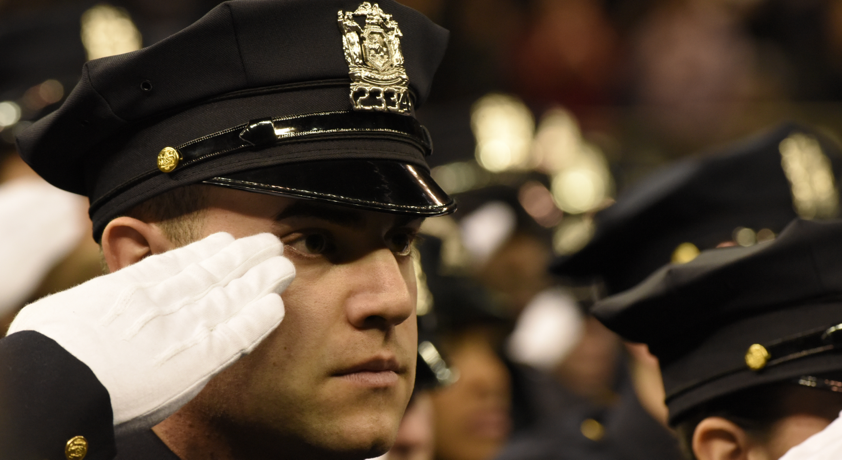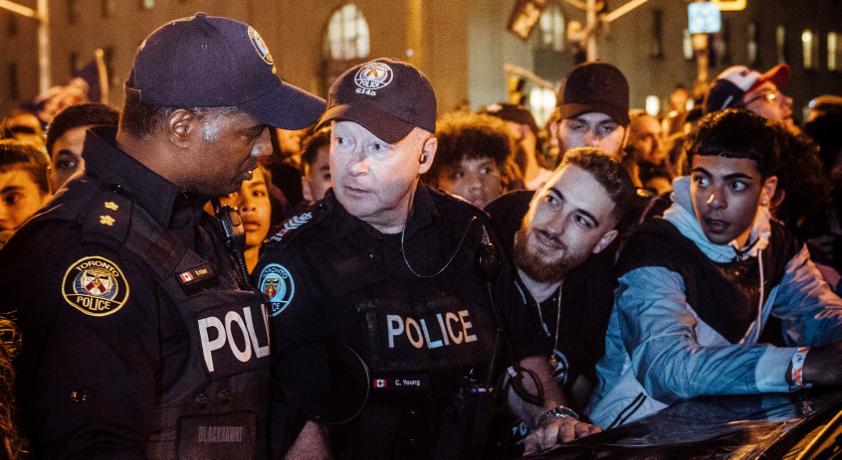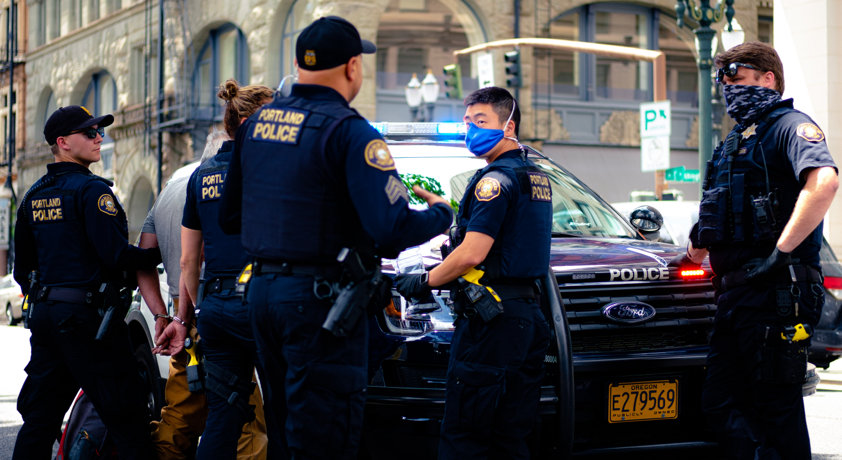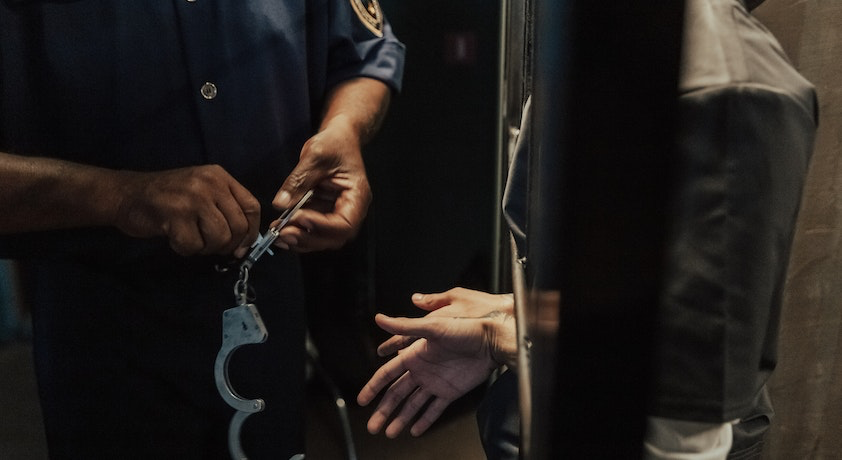Characteristics of an Ideal Police Officer

Being a police officer means having the ability to uphold every part of the job. As such, qualified candidates must display not just the bare minimum of credentials, knowledge, and criteria. They must also possess other qualities — qualities that cannot necessarily be taught or learned. These “soft skills” become paramount to fulfilling the daily duties of a police officer and helping their department work as a functional whole. Without them, even a candidate who appears exceptionally qualified can cause problems, increase costs and generally work against the goals of an orderly, functioning society.
As anyone involved in law enforcement will tell you, finding qualified recruits with the right blend of knowledge, skills, and traits is a challenging task. In addition to the traditional criteria of a clean police record, stable employment history, and financial responsibility, they must absolutely possess the needed additional factors that are crucial to a police officer’s success.
To help verify whether a career in law enforcement as a police officer would be right for you, consider whether you have the following traits that are needed to excel and make a real difference in the community.
Top Traits of Successful Officers
Strong Initiative
Crimes do not solve themselves, and criminals — at least most of them — generally go out of their way to not implicate themselves. As such, a police officer must always be willing to take initiative in order to discover criminal activities that may not be readily obvious.
For instance, traffic contacts present many opportunities for police officers to uncover crimes. During the course of a routine stop, the officer may discover unnatural behavior or other indications that the cause of the stop was more than meets the eye. Without going beyond the bounds of due process, a police officer can pursue his reasonable suspicion to ask the driver and occupants additional questions while noting observable parts of the interior.
Whereas a lesser-motivated officer might hand out the ticket and continue with their patrol, an officer with initiative can do more to understand whether their suspicions are correct and whether the traffic violation was the end of the crime discovery period or merely the beginning of it.
Sense of Ethics
Although many law schools and other institutions try, ethics is a subject that is difficult to teach or impart. Individuals who possess an innate sense of personal ethics and an understanding of how laws impart ethics are at an advantage since grey areas can be so hard to categorize.
In law enforcement, such a grasp of ethics can be critical to officers that want to uphold every aspect of the law. The truth is, police officers are in a position to commit crimes every day by ignoring procedure, breaching due process, stretching the truth on reports, or generally overstepping their legal bounds. Even if such activities do not run afoul of the letter of the law, the police officer is hurting the values that they swear to uphold. Indeed, some police officers may be quite adept at catching criminals while committing criminal acts in the process.
To avoid this conflict, an officer must be able to always listen to an inner ethical voice. They can use this grounded center to also help their colleagues avoid the temptation of ethical breaches. Everyone looks out for each other in law enforcement.
Adept at Communication
Communicating is central to a police officer’s duties. Whether interacting with peers, superiors or people on the street, an officer should be capable of expressing themselves clearly while having good listening comprehension skills. These skills go beyond written-style communication to encompass a wide variety of communicating modes, both verbal and nonverbal. Such abilities will allow them to get the information they need from someone even if they are very excited or speaking in obscure slang, for instance.
Additionally, an officer should be adept at reading body language as well as transmitting nonverbal communication during key moments in the field. Essentially, your colleagues must be able to understand you and be understood at all points.
Even Tempered
Plenty of police officer candidates have exceptional skills and abilities but with one glaring personality flaw: they lose their tempers easily. Make no mistake that losing your temper in the field does not just make you look unprofessional, it can easily cost lives. Situations that could have been controlled are now escalated. The officer is tempted to ignore the procedure in order to act out vengefully. Then, someone can lose their life when the situation was completely avoidable.
For this reason, aggressiveness is not a trait that is admired in police work unless it is channeled productively rather than destructively. Officers must be able to maintain rational thought and composure, especially when working in the field.
Common Sense
Common sense is one of those skills that can be tough to define. An ability to quickly rationalize, identify patterns, or process information helps. Experience in a wide variety of situations can also lead to “street smarts” that can fuel common sense behavior.
While difficult to pin down, common sense is nonetheless a critical skill in an officer’s repertoire. They must be able to identify and avoid potential mistakes in addition to rapidly deducing the best course of action to take next.
Desire to Learn
Communities are always evolving, and so must law enforcement. Police officers are constantly encountering new situations and learning from them. They are also reaping the benefits of intense sociological and criminological research that can lead to new, more effective policies and procedures.
Officers that are eager to pursue this new knowledge will go far while pushing their community forward. There is always more to see, do and learn when your goal is to serve the community as best you can.
Patience, Tolerance, and Kindness
Going back to being even-tempered, a police officer must also have an inbuilt need to serve others’ best interests, even criminals. Empathy can help officers maintain composure and rational thought in situations that could frazzle those without a sense of compassion. Being patient and tolerant can likewise open up solutions that get taken off the table once someone begins behaving aggressively.
These considerations go beyond interacting with criminals, too. Police officers may encounter situations that are difficult for them to understand, like a child who is being abused. With kindness in their hearts, they can seek out ways to make that child’s life better, no matter how small.
Driven to Serve
Upholding the sworn duties of a police officer is frequently difficult, so those who wish to serve must be able to find a reward beyond that of a typical career. Aside from their salary, benefits, or the pleasure obtained from using certain skills professionally, a police officer must be able to derive satisfaction by adhering to values that help keep society together. Serving the law, preserving the peace, and protecting the vulnerable should all strongly motivate individuals to excel and improve their community through their daily actions. Duty can and should be its own reward.
Knowledge of the Law
Police officers’ daily tasks will require them to become familiar with complex laws, statutes, and ordinances. Having a core knowledge of law and law theory can go a long way toward making learning these specific laws quicker. An officer who has studied constitutional law, as well as the most relevant state laws, will be able to understand individual laws better.
Put simply, laws change all the time, but understanding their intent can make navigating legislative changes or complex statutes easier.
Enthusiasm for Action
Police work can often become, for lack of a better word, scary. Some individuals may not be able to handle the pressure and anxiety of these dangerous situations. Officers who enjoy the thrill of a challenge or who are willing to set aside their fears in order to fulfill their duties will excel in these situations. Those that are able to thrive under pressure may even be more likely to save the life of their colleague or a civilian by acting quickly and seizing opportunities rather than hesitating.
Do You Have What It Takes?
Deciding to become a police officer involves intense self-examination. Many of the skills listed above cannot be taught, or they cannot be grasped without a firm foundation. Plenty of skilled candidates are unable to fulfill their duties without a complete set of these skills.
Study the list carefully, think about the values these skills represent, and decide to commit to being the best officer you can be by demonstrating those values to your community if or when you serve.




